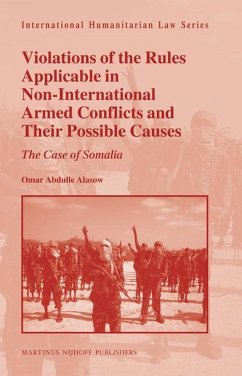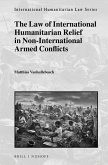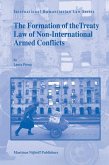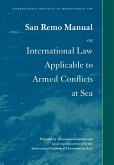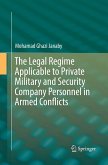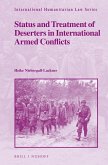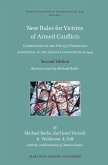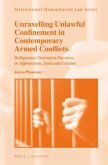While all armed conflicts are marked by violations of international humanitarian law, non-international armed conflicts appear to be characterised by even more serious violations of international humanitarian law on a colossal scale. This study is aimed at understanding the possible factors that may cause parties to non-international armed conflicts to engage in violations despite the fact that not only international humanitarian law but also other bodies of rules (e.g. legal and moral) impose restrictions and obligations similar to international humanitarian law. Somalia, which for over 15 years has been experiencing internal armed conflicts marked by widespread violations, is a typical case. This study addresses the root causes of the internal armed conflict in Somalia and identifies factors which contributed to the collapse of the Somali state and the reasons for its continuing conflict. It also examines the characteristics of the conflict. In order to examine the extent to which applicable rules have been respected or not, the study examines both international rules applicable in non-international armed conflicts and specific Somali rules of warfare. After demonstrating evidence of violations and analysing it, this study seeks to identify possible direct and indirect causes of these violations. In addition, it also seeks to identify whether such possible causes contribute to violations that are unique to the situation in Somalia, or, if not, whether there may be lessons to be learnt for other situations similar to that in Somalia.
Hinweis: Dieser Artikel kann nur an eine deutsche Lieferadresse ausgeliefert werden.
Hinweis: Dieser Artikel kann nur an eine deutsche Lieferadresse ausgeliefert werden.

